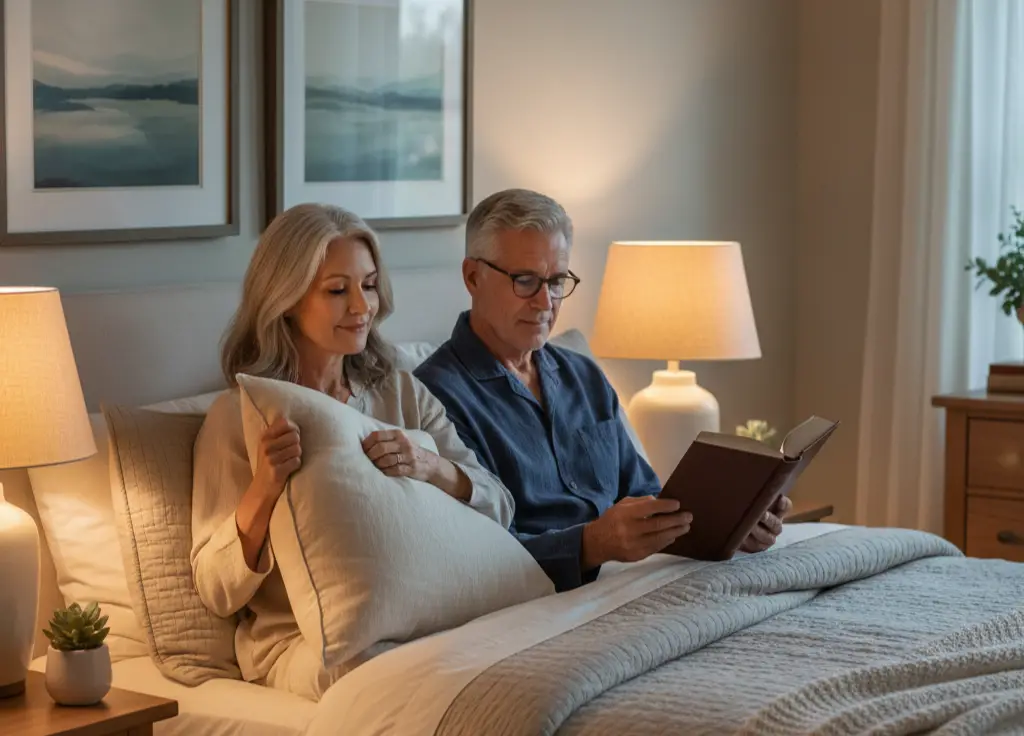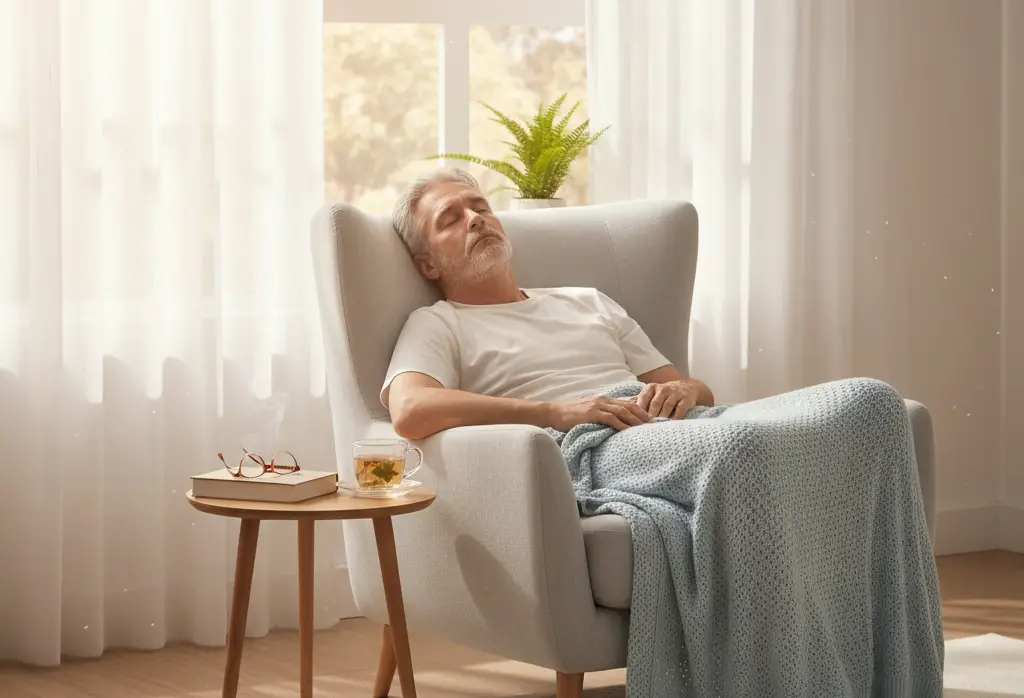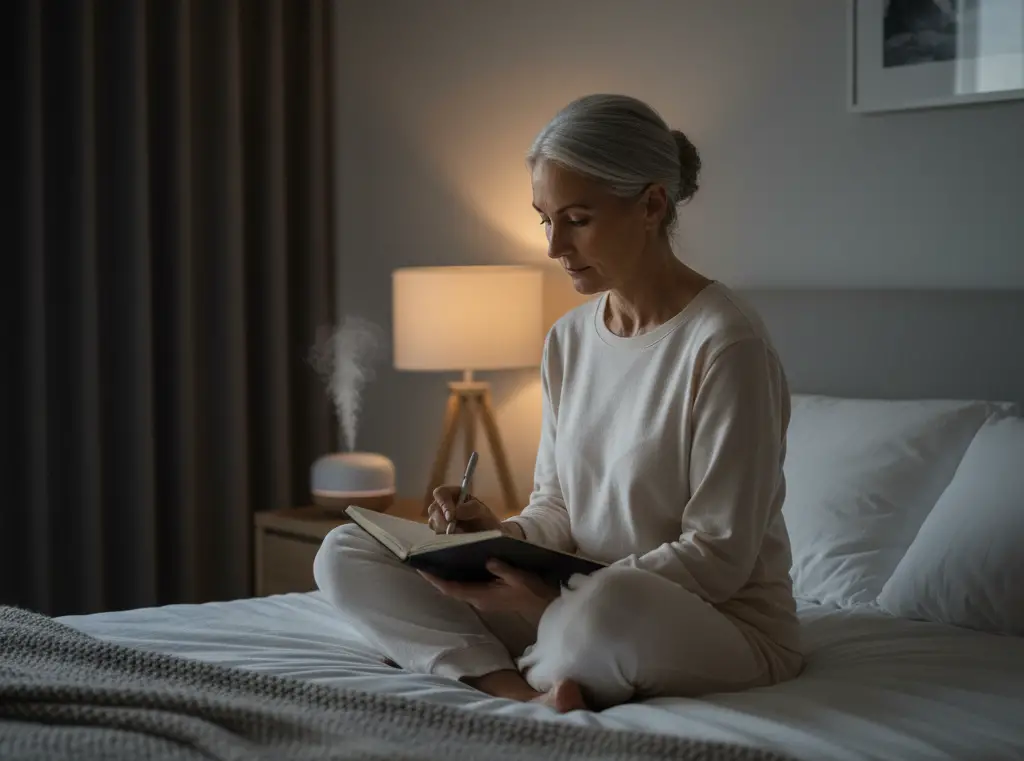8 Proven Sleep Hacks That Actually Work for Boomers (According to Experts)

If you’re a baby boomer, chances are you’ve noticed that sleep doesn’t come quite as easily as it used to. Maybe you fall asleep just fine but wake up at 3 a.m. and can’t drift back off. Or perhaps you toss and turn for hours, wondering how your body seems to have forgotten how to rest. You’re not alone. According to the National Sleep Foundation, nearly half of adults over 60 struggle with insomnia or disrupted sleep.
But here’s the good news: it’s not all downhill. While changes in hormones, medications, and lifestyle can make sleep trickier with age, there are plenty of science-backed strategies that can help you sleep better and wake up feeling more refreshed. These are not gimmicks or “quick fixes,” but realistic habits experts say actually work—especially for boomers.
So, grab a cozy blanket, settle in, and discover eight expert-approved sleep hacks that could help you finally reclaim those restful nights.
1. Stick to a Consistent Sleep Schedule

You might not be punching a clock anymore, but your body still craves structure. Going to bed and waking up at the same time every day helps regulate your internal clock, which makes it easier to fall asleep and wake up naturally.
Dr. Rebecca Robbins, a sleep scientist at Brigham and Women’s Hospital, explains that our bodies love routine. “When you keep a consistent schedule, your brain starts associating certain times with rest. That consistency makes falling asleep easier,” she says.
If you’ve retired and find your schedule more flexible, try setting a gentle alarm in the morning and aiming for a bedtime that allows for seven to eight hours of rest. Resist the urge to stay up late watching TV or sleep in too long—your body will thank you for the rhythm.
2. Make Your Bedroom a Sleep Sanctuary

Think of your bedroom as your personal retreat for rest and relaxation. Experts recommend keeping it cool, dark, and quiet to signal to your brain that it’s time to wind down.
The National Institute on Aging notes that as we get older, we become more sensitive to noise and light, both of which can interrupt sleep. Try blackout curtains or an eye mask to block unwanted light and use earplugs or a white noise machine to mask disruptive sounds.
And while it’s tempting to watch TV or scroll on your phone in bed, try to reserve that space for sleep only. When your brain associates your bed with rest instead of entertainment, it learns to shift into sleep mode more easily.
3. Keep Naps Short and Sweet

Ah, the afternoon nap—a favorite pastime for many boomers. While a little daytime rest can be beneficial, too much of it can backfire. Long or late naps can make it harder to fall asleep at night by reducing your sleep drive.
Sleep researchers suggest limiting naps to 20 or 30 minutes and taking them earlier in the afternoon, ideally before 3 p.m. That way, you can recharge without sabotaging your nighttime sleep.
If you find yourself constantly needing long naps to get through the day, that could be a sign that you aren’t getting quality sleep at night. In that case, it might be time to review your bedtime habits—or talk to your doctor about possible underlying issues like sleep apnea.
4. Get More Natural Light and Daily Movement

Here’s a simple yet powerful trick: step outside. Sunlight exposure helps regulate your body’s natural sleep-wake rhythm, known as the circadian rhythm. Even just 20 to 30 minutes of morning light can cue your body to be alert during the day and ready for rest at night.
Pair that with some daily movement—even gentle exercise like walking, gardening, or stretching—and you’ll likely notice an improvement in your sleep quality. Exercise helps release tension, lower stress, and boost the production of hormones that support deep sleep.
The best part? You don’t need an intense gym routine. A morning stroll around the block or tending to your backyard plants can be enough to give your body the cues it needs for better rest later on.
5. Be Mindful of Evening Caffeine, Alcohol, and Heavy Meals

You probably already know that caffeine can keep you awake, but did you know that your body becomes more sensitive to it as you age? The same goes for alcohol and large meals close to bedtime—they can disrupt your sleep even if you don’t realize it.
Caffeine can linger in your system for up to eight hours, so it’s best to stop drinking coffee, tea, or soda by early afternoon. Alcohol might make you drowsy initially, but it often causes fragmented sleep and early wake-ups. And as for those late dinners? Try to finish eating at least two to three hours before bed to give your body time to digest.
A soothing cup of herbal tea, such as chamomile or valerian root, can make for a great caffeine-free alternative that helps you unwind.
6. Create a Calming Bedtime Routine

Remember how you used to tuck your kids into bed with a routine—bath, book, lights out? Turns out, adults benefit from bedtime rituals too. A consistent routine helps signal to your brain that it’s time to slow down and rest.
You might try reading a paperback, practicing gentle yoga stretches, listening to calming music, or doing a bit of journaling before bed. Avoid screens during this time since the blue light from phones and tablets can trick your brain into thinking it’s still daytime.
Think of this hour as “you time.” Dim the lights, relax your body, and allow your mind to gently transition from the busyness of the day to a state of calm.
7. Reduce Screen Time and Blue Light Before Bed

Screens are everywhere these days—from your smartphone and tablet to your television—and while they’re convenient, they can wreak havoc on your sleep. The blue light they emit suppresses melatonin, the hormone that helps you fall asleep naturally.
Experts recommend shutting down electronics at least 30 to 60 minutes before bed. If you must use your devices, switch to a “night mode” or blue light filter to minimize the impact.
You can also replace evening screen time with more relaxing, screen-free activities like listening to an audiobook, knitting, or chatting quietly with your partner. Your eyes and brain will appreciate the break, and your sleep will improve as a result.
8. Talk to Your Doctor if Sleep Problems Persist

Sometimes, sleep issues are not just about habits—they can be tied to medical conditions or medications. Sleep apnea, restless leg syndrome, and even thyroid issues can all interfere with your ability to get good rest.
If you consistently wake up feeling tired or have difficulty staying asleep despite your best efforts, it’s worth speaking to a healthcare provider. They can rule out underlying conditions or adjust medications that may be affecting your sleep.
Remember, sleep problems are not just “part of getting older.” With the right approach and professional guidance, you can improve your sleep quality and feel more energetic during the day.
Final Thoughts

Sleep is one of the most powerful yet underrated tools for staying healthy, energetic, and happy as we age. For baby boomers, prioritizing rest can make a world of difference—sharper focus, better mood, stronger immunity, and even improved heart health.
The key takeaway? You don’t need to overhaul your life to sleep better. Start small. Maybe you begin by getting more sunlight, or by setting a consistent bedtime. Each positive change builds momentum. Before long, you’ll find yourself sleeping more deeply and waking up feeling more refreshed.
You’ve worked hard for decades—now it’s time to rest just as intentionally. So tonight, make your bedroom cozy, turn off the screens, sip something soothing, and give yourself the gift of real, restorative sleep. You’ve earned it.
Leave a Reply